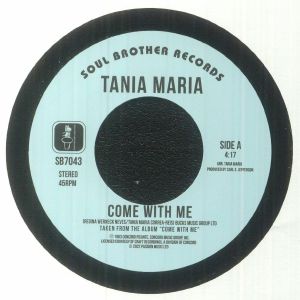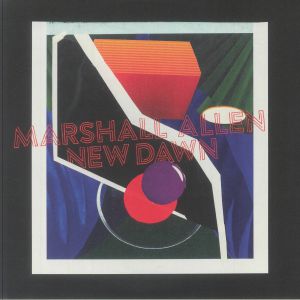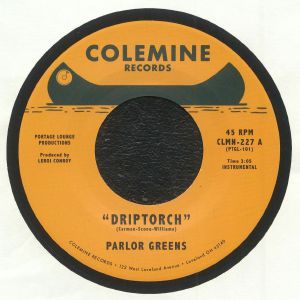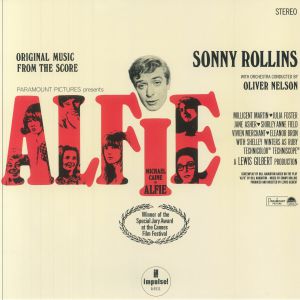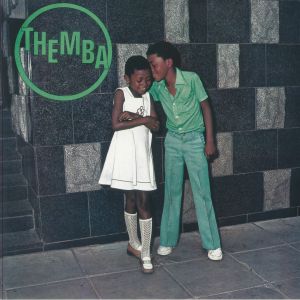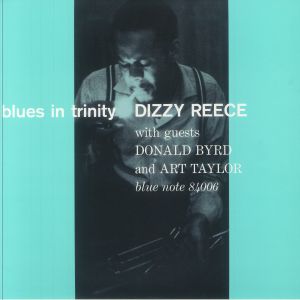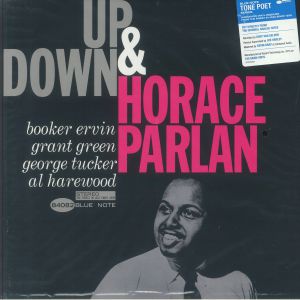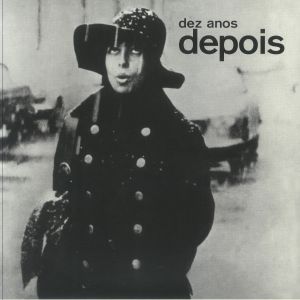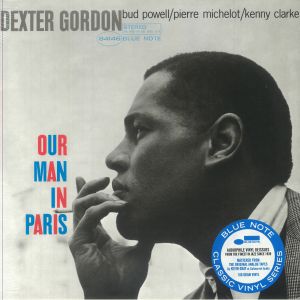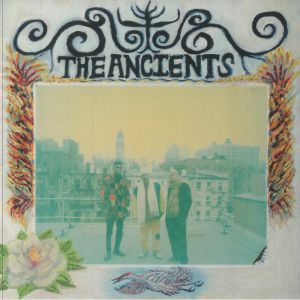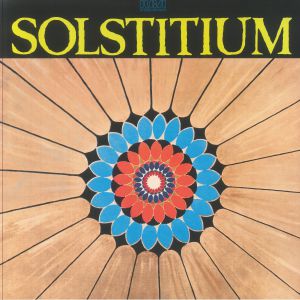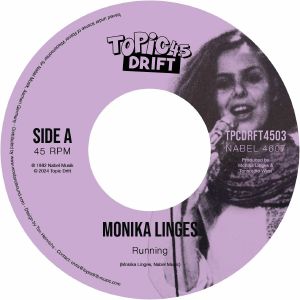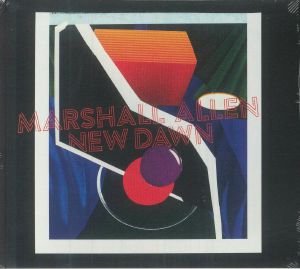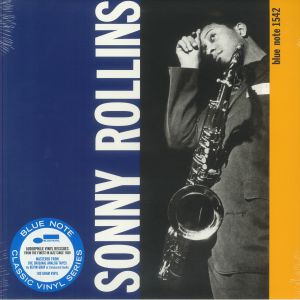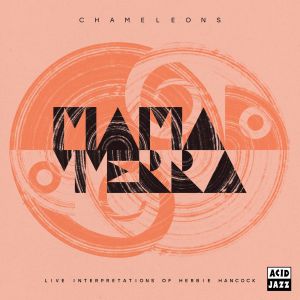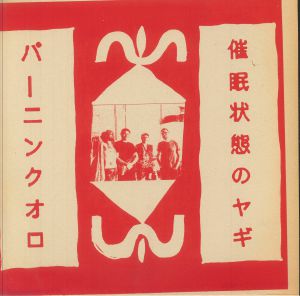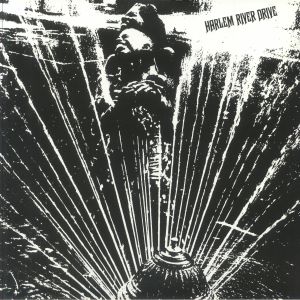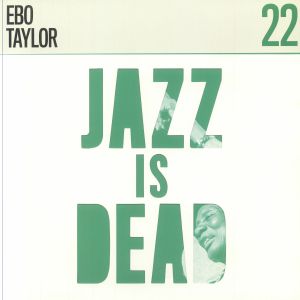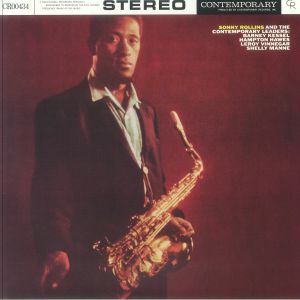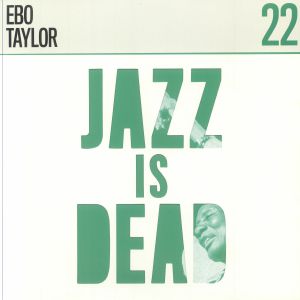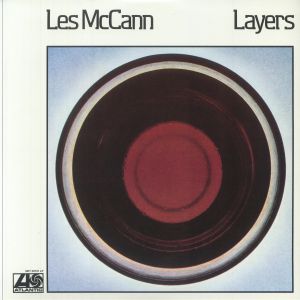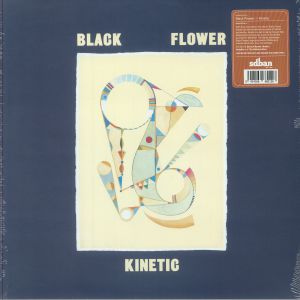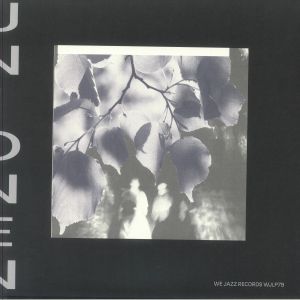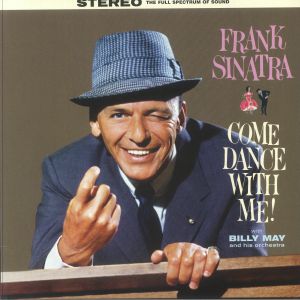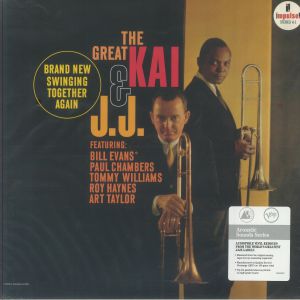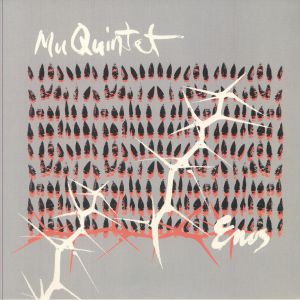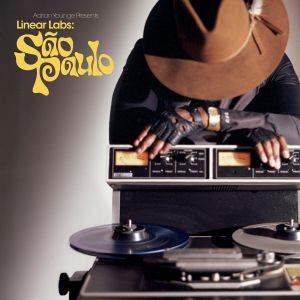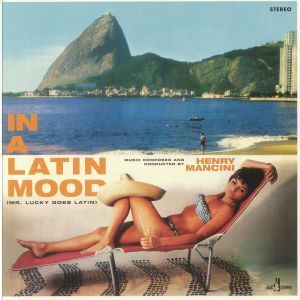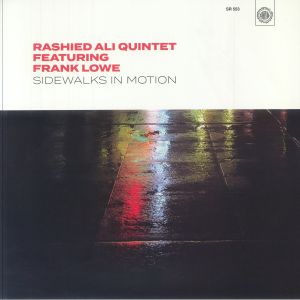
Juno Recommends Jazz
Jazz Recommends Jazz: February 2025
5 Mar 2025
https://www.juno.co.uk/jazz/four-weeks/
Read more...
1
Review: This one is such an evergreen summer classic that it sells out whenever it reappears and gets reissued on a regular basis. Last time was last summer but now the rays are back in our lives we're glad it is available one more. Brazilian jazz vocalist Tania Maria is a true icon with a huge back catalogue of music behind her. Here, Soul Brother look back to her 1983 album Come With Me and lift a pair of pearlers for this vital 7". 'Come With Me' is a sundown slinker, with Maria's airy tone gliding over the sprightly piano chords while on the flip 'Lost In Amazonia' is a joyous, scat-powered slice of jazz funk with incredible slap bass flex. Essential summer grooves.
...Read more
in stock $15.51
2
Review: Sun Ra Arkestra's bandleader since 1958, Marshall Allen, will always be known for his hyper-effected sax wayfarings; he treats a simple monophonic brass instrument as a vessel for psychic voyaging, onstage and off. Perhaps, however, this has meant he's been too freewheeling in his approach: Somehow, in over 70 years since joining the Arkestra, Allen had never recorded a solo album. That all changed just two days after his 100th birthday, resulting in what you hear here. Now the debut album by a live legend unfolds, like a rogue planet hidden behind a supernova. This proverbial "new dawn" draws on both new beginnings and legacies, waxing gibbous between big band swing, freer-form danceoffs, and even a vocal hoverer with Neneh Cherry.
...Read more
in stock $39.63
3
Review: Ohio-based instrumental organ trio Parlor Greens, known for their blend of soul, funk and blues, return with a new 7" that follows their acclaimed debut from 2024. Side-1 features 'Driptorch', which is driven by crunchy drums from Tim Carman, funky guitar riffs by Jimmy James and Adam Scone's expressive Hammond organ. The track delivers a high-energy, groove-filled adventure. On Side-2 ,'200 Dollar Blues', introduces a fresh, mid-tempo instrumental. This blues shuffle highlights James' searing Stratocaster solos, complemented perfectly by Scone's soulful organ work. Their interplay exudes a raw, electrifying energy, while Carman's steady, dynamic drumming grounds the track, making this one for fans of deep soul and blues.
...Read more
in stock $9.70
4
Review: Sonny Rollins' 'Alfie' soundtrack, originally released in 1966, is an enthralling example of the saxophonist's ability to weave narratives through his music, his incisive and energetic playing breathing life into the film's themes of love, loss and the complexities of human relationships. The iconic 'Alfie's Theme' and its variations are instantly recognisable, their melancholic beauty capturing the film's emotional core. But the album also features hidden gems like the regret-tinged 'He's Younger Than You Are' and the sensually relaxed 'On Impulse', showcasing Rollins' versatility and emotional range.
...Read more
in stock $38.79
5
Review: Originally released on the Soweto label in 1976, this record is a rare gem that perfectly encapsulates the exciting energy of its era. Themba is the sole album from the South African group led by Baba "Themba" Mokoena, a recording that has a timeless blend of sophisticated improvisation and infectious groove. Mokoena, renowned for his guitar prowessifirst spotlighted on Dick Khoza's landmark Chapitaileads a skilled ensemble through a set of tracks that balance technical brilliance with undeniable danceability. The standout cut, 'Fana Fana', exemplifies this alchemy, featuring fluid saxophone melodies, crisp guitar riffs, nice flute solo and an energetic horn section. Throughout the album, the interplay between instruments shows the group's dynamic synergy, creating a sound both lush and immediate. The layered textures and lively rhythms invite listeners into a world brimming with cultural pride and musical ingenuity. Now reissued for the first time nearly 50 years later, Themba resonates with the same soulful vitality that made it a cornerstone of South African jazz. Remastered from the original master tapes under As-Shams Archive, this reissue ensures the album's brilliance continues to inspire new generations.
...Read more
in stock $33.54
6
Review: A transatlantic jazz summit, capturing Jamaican trumpeter Dizzy Reece alongside American legends Donald Byrd and Art Taylor. Recorded in London in 1958, Blues In Trinity marks Reece's Blue Note debut, a vibrant blend of hard bop and soulful melodies and features a stellar lineup including Tubby Hayes on tenor sax, Terry Shannon on piano and Lloyd Thompson on bass. Reece's trumpet shines throughout, his expressive playing and melodic phrasing complemented by Byrd's equally impressive contributions. Highlights include the soulful title track, the dreamy 'I Had The Craziest Dream' and a captivating rendition of Monk's 'Round About Midnight'.
...Read more
in stock $39.35
7
Review: This Tone Poet Vinyl Edition presents Horace Parlan's quintessential hard bop quintet session. Known for his work with Charles Mingus, Parlan shines alongside George Tucker, Al Harewood, Grant Green, and Booker Ervin. The music swings with an effortless groove, showcasing Parlan's bluesy piano stylings and the band's tight interplay. Mastered from the original analogue master tapes by Kevin Gray, this reissue captures the warmth and vibrancy of the original recording. A must-have for any fan of hard bop and classic Blue Note sounds.
in stock $39.35
8
Review: Nara Leao takes a reflective journey through her musical career with this stunning double album, originally released in 1971. Recorded in both Paris and Rio de Janeiro, it's an intimate collection of reinterpreted classics, showcasing Leao's gentle yet emotionally powerful vocals. The album features timeless tracks like 'Chega de Saudade', 'O Barquinho', and 'Corcovado', each stripped back to its essence with minimalist acoustic arrangements. Leao's voice shines throughout, capturing the nuances of these beloved songs with a delicate touch and heartfelt sincerity. The involvement of guitarist Tuca, known for her work with Francoise Hardy, adds another layer of depth to the recordings, her playing complementing Leao's vocals with sensitivity and grace.
...Read more
in stock $40.47
9
Review: Super cool jazz cat Dexter Gordon's 1963 album Our Man in Paris marked his first release from Europe and is often regarded as the final bebop album. The saxophonist gathered a quartet featuring bebop legends Bud Powell on piano and Kenny Clarke on drums and they played alongside French bassist Pierre Michelot to record this timeless work at CBS Studios in Paris. The album is defined by Gordon's commanding saxophone with the intricate rhythms of bebop that take you right back to a precise moment of musical history which marked a significant transition in jazz. It remained a defining work in Gordon's career.
...Read more
out of stock $31.04
10
Cat: ZORN 112. Rel: 17 Feb 25
Jazz
Review: The debut recording from The Ancients, an intergenerational trio featuring Isaiah Collier, William Hooker and William Parker initially formed to play Milford Graves' Mind Body Deal exhibition at the Institute of Contemporary Art in Los Angeles. This double LP captures the raw energy and improvisational brilliance of their live performances, showcasing the enduring legacy of free jazz. Collier's tenor saxophone soars and wails, drawing on influences from John Coltrane to Charles Gayle, while grounding his explorations in a deep understanding of structure and form. Hooker's drumming is a force of nature, a whirlwind of polyrhythms and explosive energy that pushes the music to its limits. And Parker, a true legend of the avant-garde, anchors the music with his virtuosic bass playing, creating a foundation for the trio's improvisational flights. The music is both a celebration of the rich history of free jazz and a bold exploration of new sonic territory. The Ancients tap into the spirit of their predecessors, channeling the energy of the Cecil Taylor Unit and the Ornette Coleman Trio, while forging their own unique path, the power of collective improvisation looming large throughout.
...Read more
in stock $39.35
11
Review: This is the first-ever reissue of Gianni Marchetti's 1978 LP Solstitium, which was originally released as part of RCA's "Original Cast" series in limited promo copies and has long been considered one of the most rare and enigmatic pieces of Italian library music. Library music was primarily created for television, radio and film but often yielded hidden gems that fused jazz, lounge and soul into storytelling vignettes of sounds. Marchetti's wonderful Solstitium is a prime example of innovation within this space which rightly remains a classic in the history of Italian music.
...Read more
in stock $25.22
12
Review: Monika Linges' voice sways between jazz and bossa nova with a natural ease that makes it seem like she was born for this. But her latest track pushes things furtherigently drawing you in with a relaxed yet intricate arrangement, before layering in subtle harmonies and rhythmic flourishes. There's a warmth to the way she sings, each note spilling effortlessly into the next, hinting at a deeper emotional core. It's a performance that feels personal yet universal, bringing the complexities of her influences into a fresh light. By the time it fades, you're left with the feeling of something timelessia quiet reflection on both genre and soul.
...Read more
in stock $14.14
13
Review: A century of musical wisdom unfolds in a striking debut that bridges past and future with effortless fluidity. Channeling the avant-garde spirit of Sun Ra while carving out a singular voice, the album explores transdimensional jazz palettes, blues-infused big band and serene introspection. At its core is an artist whose mastery of saxophone and EVI transcends boundaries, fusing deep improvisation with a lifetime of sonic exploration. The project, spearheaded by longtime collaborator Knoel Scott and producer Jan Lankisch, emerged from an archive of unrecorded compositions. Featuring luminaries like Michael Ray, Jamaaladeen Tacuma and Cecil Brooks, the sessions in Philadelphia captured a raw, spontaneous energy. The title track blends spiritual jazz with the unmistakable vocals of Neneh Cherry, her presence adding a layer of cosmic depth. 'African Depth' is an atmospheric jazz gem of the highest order. A lullaby that will expand your horizons, the piece takes the album to another level. Defined by both reflection and innovation, the album reveals a previously unheard side of its creatoriswinging, bopping and expanding jazz's celestial reach. Though deeply rooted in tradition, the music never lingers in nostalgia, instead pushing ever forward. Not a culmination but an evolution, this is a real a love letter to spacetime that resonates across generations.
...Read more
out of stock $16.91
14
Review: Sonny Rollins made his Blue Note debut in 1949 with Bud Powell, but returned as a leader in 1956 with Volume 1. This album showcases classic Rollins so has plenty of hard-swinging originals and a tender ballad that perfectly offer up his powerful sound and boundless improvisational skills. The quintet includes Donald Byrd, Wynton Kelly, Gene Ramey and Max Roach who all support Rollins in creating a dynamic blend of jazz. This record solidified Rollins' reputation as a leading figure in the genre, and that is still true to this day.
in stock $31.04
15
Cat: AJXLP 816. Rel: 17 Feb 25
Jazz
Review: Following the success of their acclaimed debut album, Mama Terra returns with a vivid tribute to one of their major influences, Herbie Hancock, where the group have reimagined his groundbreaking 1973 masterpiece, 'Head Hunters', in a live setting. Recorded at the Glasgow Jazz Festival 2024, the album captures the band's energetic performance and their deep respect for Hancock's music. Mama Terra stays true to the spirit of the original while adding their own unique flavour, replacing the synth parts with a captivating blend of vocals, saxophone, and effects-laden bass. The album also incorporates elements from other Hancock classics like 'Cantaloupe Island' and 'Butterfly', creating a dynamic and imaginative tribute to a true jazz legend.
...Read more
in stock $29.92
16
Review: Goats In A Hypnotic State is one of those deep, moving explorations of ambient soundscapes that smudges together ethereal drones, field recording, and mesmerising synth textures. The three-track work evokes a sense of surreal calm as delicate melodies and subtle rhythms build hypnotic atmospheres and each piece unfolds slowly, with layers of sound intertwining to create a vast, meditative space. The organic sounds of nature, such as distant goat calls and wind, ground the work, while the synthetic elements elevate its dreamlike quality. Overall there is no way you can hear this and not be invited into a tranquil, introspective world where time and thought dissolve into the music itself.
...Read more
in stock $29.65
17
Review: The 1971 debut from Harlem River Drive fused Latin soul, jazz and funk. Its recording and production landed a full, yet light stereo feel, one that shook and quaked the hardened and heavy foundations of America. Bandleader and pianist Eddie Palmieri saw to an aerated sound, which aimed to affectively liberate America from the manacles of racial and socioeconomic tension. Groundbreaking for its bringing-together of Black and Puerto Rican musicians when racial divisions were still strong even in the New York music scene, ’Seeds Of Life’ and ‘Idle Hands’ are examples of songs besides the title track that work in different registers, either basking in an unshaken force of life, or reproving the listener for their political sloth.
...Read more
out of stock $32.70
18
Cat: JID 022LPC1. Rel: 03 Feb 25
Jazz
Review: At 88, Ghanaian highlife and afrobeat legend Ebo Taylor made his first-ever journey to the US, performing in the Jazz Is Dead concert series. These shows, which sold out across the country, led to an unexpected and electrifying collaboration between Taylor, Adrian Younge, and Ali Shaheed Muhammad. The result is a psychedelic afrobeat album, recorded at Younge's Linear Labs studio, that's bound to thrill fans of both classic West African funk and afrobeat purists. The album channels the raw energy of Ebo's 70s recordings, with swirling horns, fuzzed-out guitars, and the unmistakable polyrhythmic percussion that made Taylor a revolutionary figure in African music. "Collaborating with Ebo Taylor is a bucket-list accomplishment," says Younge, likening the experience to working with another afrobeat pioneer, Fela Kuti. The analog recording style, embracing the gritty textures of 70s Africa, gives this album an authenticity that's impossible to ignore. Tracks like 'Beye Bu, Beye Ba' and 'Kusi Na Sibo' exemplify Taylor's profound lyricism. His reflections on love, spirituality, and gratitude echo his decades-long career, while the ensemble of Ghanaian vocalists adds a spiritual depth that transports listeners back to his prime. Ebo's son, Henry Taylor, also features, proving himself a formidable talent in his own right. This album is not just a nod to the past but a crowning achievement in Taylor's enduring legacy. For connoisseurs of afrobeat, it's a standout moment in both Ebo's catalogue and the growing canon of the Jazz Is Dead series.
...Read more
in stock $31.88
19
Cat: CR 00600. Rel: 17 Feb 25
Jazz
Review: Jazz saxophonist Sonny Rollins assembled a star cabinet of collaborators on his 1959 hard bop record, uniting a near justice league of greats whose roster tallied Hampton Hawes, Barney Kessel, Leroy Vinnegar, Shelly Manne and Victor Feldman. Known as the last of the Rollins records to be released before the artist's untimely retirement - at least, the first of several sabbatics, though that didn't prevent him appearing on The Simpsons in 2013 - this LP comprises a long host of standards and originals, including brilliantly vibraphonic call-responses, faster extended phrases and walking-bass bouffants.
...Read more
in stock $40.47
20
Cat: JID 022LP. Rel: 03 Feb 25
Jazz
Review: At 88, Ebo Taylor, the legendary Ghanaian highlife and Afrobeat pioneer, made his U.S. debut at the Jazz Is Dead concert series, captivating audiences nationwide. This historic visit coincided with the recording of Ebo Taylor JID022, a groundbreaking psychedelic afrobeat album produced with Adrian Younge and Ali Shaheed Muhammad. Younge expressed the significance of this collaboration, likening it to working with Fela Kuti, emphasising the dream of capturing Ebo's essence on analog tape. The album features swirling horns, gritty guitars and polyrhythmic percussion reminiscent of Taylor's seminal 1970s work, alongside spiritually rich backing vocals that evoke a sense of nostalgia. Ebo's heartfelt lyrics, exploring themes of love, peace and spirituality, resonate with nearly a century of wisdom. Tracks like 'Beye Bu, Beye Ba' and 'Kusi Na Sibo' impart life lessons on gratitude and divine provision, solidifying Ebo Taylor JID022 as an essential addition to his storied catalogue and a crown jewel for Jazz Is Dead. This release coincides with his eagerly anticipated tour across the Americas, showcasing the enduring legacy of a true musical icon.
...Read more
in stock $28.27
21
Cat: BLV 8613. Rel: 24 Feb 25
Jazz
in stock $33.25
22
Review: A major departure from Les McCann’s earlier acoustic jazz and soul jazz outings, this exquisite 11-track record by the Kentucky pianist, vocalist and composer was the first in his discography to extensively feature electronic instrumentation, making it a favourite sample seep of producers such as Madlib and J Dilla. Following a studio-driven will by McCann to expound a deep, introspective and dynamic fusion sound, the record’s cosmic outcries - guaranteed by its use of ARP Odyssey and Fender systems - serve to transcend the expectations of the soul jazz genre. At times it sounds predictive of motorik kosmische, as on ‘Let’s Gather’, and even the raunchier wah-inflectors, such as ‘The Dunbar High School Marching Band’, carry an huge re-verbiage, reminiscent of the ambitious abysses of space.
...Read more
in stock $31.88
23
in stock $29.11
24
Review: Unionen is a new quartet of top-tier Norwegian and Swedish jazz musicians, namely Stale Storlokken, Per "Texas" Johansson, Petter Eldh and Gard Nilssen. Their name references the 1814-1905 union between Sweden and Norway and their sound is truly unique in the way it combines misty introspection and energetic rock-infused jazz. This album then is a deeply original musical experience with tracks like 'Stahlbad' and '6983' dull of emotional nuance. Eight originals overall blend classic and rare instruments, creating a unified, emotive sound. Early live shows have been praised, confirming their status as a standout jazz ensemble.
...Read more
in stock $21.90
25
in stock $18.57
26
in stock $39.35
27
Review: A Leeds jazz five-piece with a film musical feel, Mu Quintet share their latest LP, which develops their modal and melodic jazz kerns and serifs, spelling out the Biblical name “Enos" in eight-track album form. Following up their Jazzaggression debut, Summit, from 2023 - which aimed at a freer set of celeritous jazz beatitudes - Enos is more measured and expressionistic by comparison. Doomy, stringy downturns pockmark the record’s otherwise merrier movements, a precedent set on the opening ‘Enos’, which couldn’t possibly predict the strutting, and perhaps relatively traditional modal swing that follows on ‘Drunk In The Morning’. We reach a funereal nadir on ‘Collapse’, while a well-mourned *bon viveur* is circumscribed on ‘Rich Man Blues’, the fullest and most enjoyable track on the LP. Very little studio trickery, synth histrionics or extra FX are required of Mu to lend their music a cosmic, larger-than-its-parts feel; the progressions alone handle the task well.
...Read more
in stock $29.65
28
Cat: LL 016LP. Rel: 03 Feb 25
Jazz
Review: 'Linear Labs: Sao Paulo' on vinyl offers a deep dive into Adrian Younge's masterful blend of analog textures and global influences. Featuring unreleased gems from projects like 'Something About April III' and Snoop Dogg's 'Don't Cry for the Devil', this LP brings together a rich array of soundsifrom Brazilian samba with Samantha Schmutz to ALA.NI's Parisian jazz and Bilal's soul-infused tracks. The album resonates with Younge's signature analog warmth and forward-thinking production. Pressed on vinyl, this release is an essential piece for collectors and fans of psychedelic soul and genre-defying music.
...Read more
in stock $27.45
29
Review: If music's power to transport us somewhere else is what makes it such an addictive drug, albums like this swooning, sun-kissed and Latin-flavour jazz delight are class-A contraband. Henry Mancini is renowned for his iconic film and television scores (and you will certainly recognise its here for that reason) and so he won multiple Grammy Awards and a posthumous Grammy Lifetime Achievement Award in 1995. His music became a staple of the easy-listening genre from the 1960s to the 1980s, but also he made significant contributions to jazz, such as this most elegant and soothing work.
...Read more
in stock $20.79
30
Review: Recorded during a 2002 studio session that followed a performance at the Vision Festival in New York City, the album features drummer Ali alongside saxophonist Frank Lowe and emerging talents Jumaane Smith (trumpet), Andrew Bemkey (piano) and Joris Teepe (bass). It's a dynamic ensemble bridges generations, blending seasoned mastery with youthful energy through fiery improvisations and moments of profound unity. Ali's pioneering style, rooted in multidirectional rhythms and polytonal percussion, reshaped jazz drumming by liberating the drummer from a purely time-keeping role. His intuitive interplay with the music, both rhythmically and melodically, made him an equal voice in the ensemble's harmonic creation. This approach resonates throughout the album, where cascading trumpet solos and intricate piano harmonies are tethered by a vibrant bass and Ali's commanding percussion. Tracks like the soaring opener and introspective interludes demonstrate the group's ability to shift seamlessly from bold, expressive improvisation to passages of collective breathing. Originally mixed and mastered by Ali, the recordings were shelved after his untimely passing and are now released by Survival Records in a beautifully restored LP, complete with recollections from Teepe.
...Read more
in stock $34.10

 USD
USD




